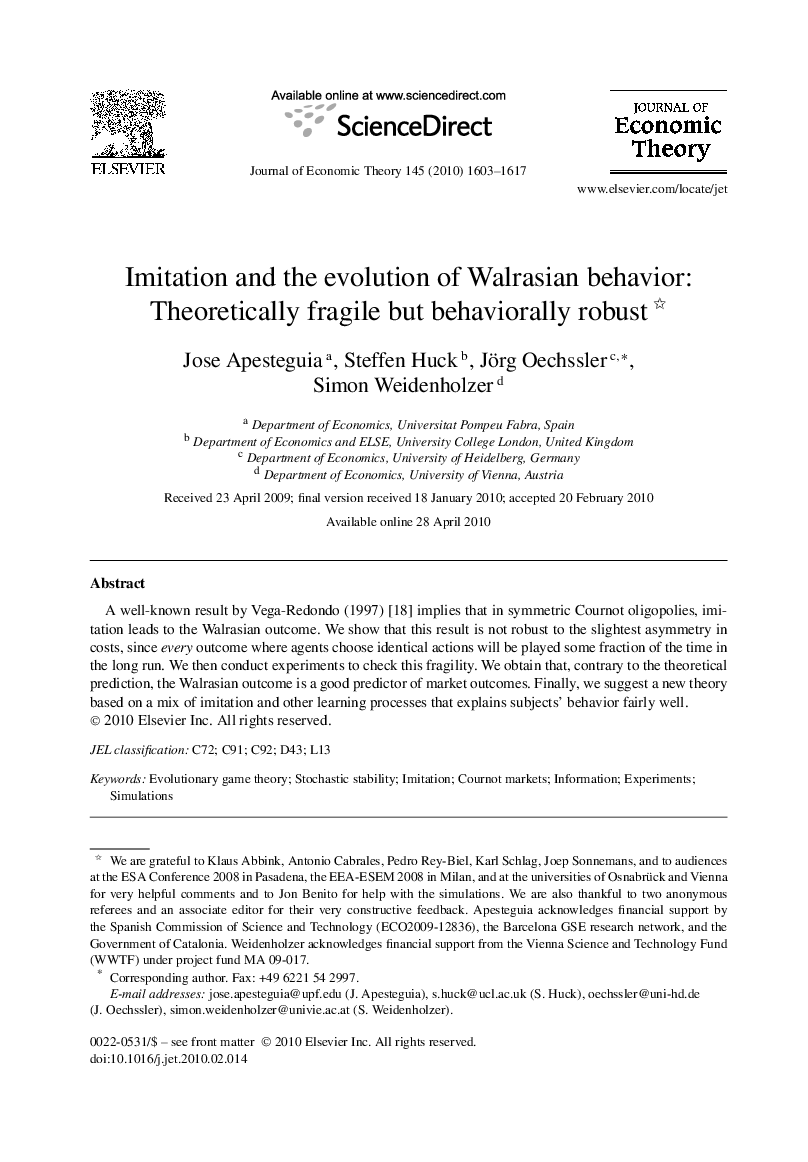| Article ID | Journal | Published Year | Pages | File Type |
|---|---|---|---|---|
| 957425 | Journal of Economic Theory | 2010 | 15 Pages |
Abstract
A well-known result by Vega-Redondo (1997) [18] implies that in symmetric Cournot oligopolies, imitation leads to the Walrasian outcome. We show that this result is not robust to the slightest asymmetry in costs, since every outcome where agents choose identical actions will be played some fraction of the time in the long run. We then conduct experiments to check this fragility. We obtain that, contrary to the theoretical prediction, the Walrasian outcome is a good predictor of market outcomes. Finally, we suggest a new theory based on a mix of imitation and other learning processes that explains subjects' behavior fairly well.
Related Topics
Social Sciences and Humanities
Economics, Econometrics and Finance
Economics and Econometrics
Authors
Jose Apesteguia, Steffen Huck, Jörg Oechssler, Simon Weidenholzer,
